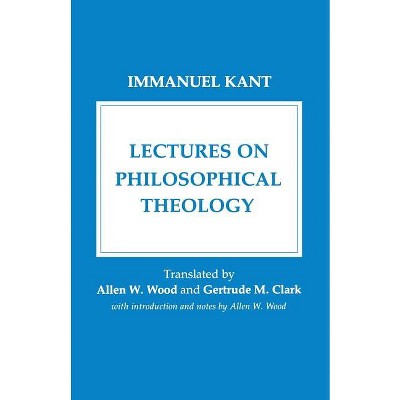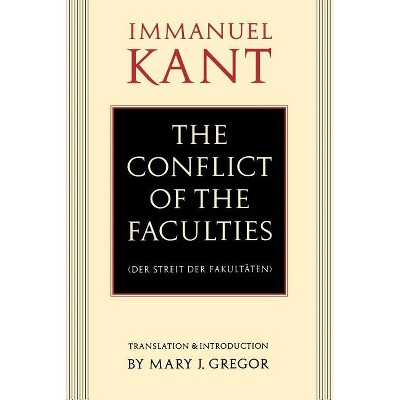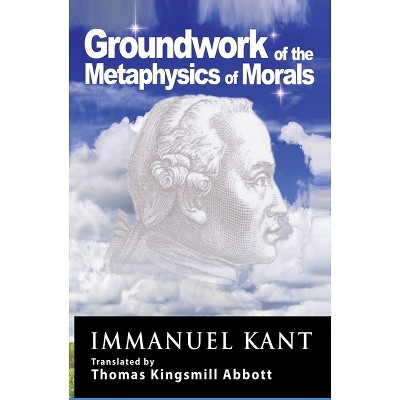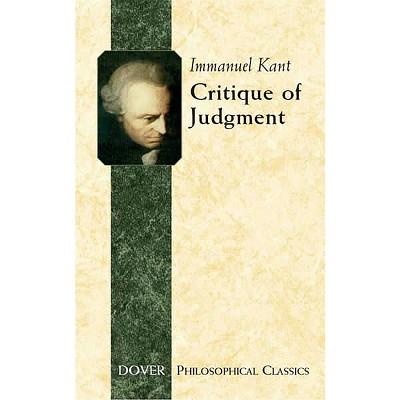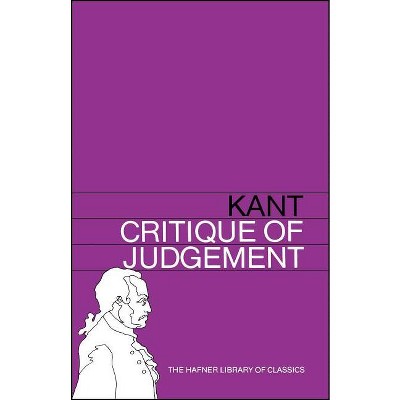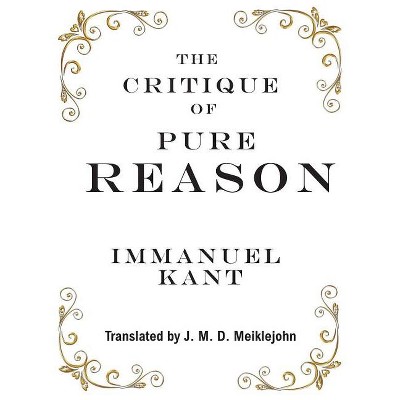Sponsored

On the Old Saw - by Immanuel Kant (Paperback)
$16.95Save $3.00 (15% off)
In Stock
Eligible for registries and wish lists
Sponsored
About this item
Highlights
- In this famous essay, first published in 1793, Kant considers the alleged conflict between theory and practice in the conduct of human affairs in three widening contexts: those of the common person faced with a moral decision, of the politician and the citizen concerned with the extent and limits of political obligation, and, finally, of the citizen of the world whose actions have a bearing on war and peace among nations.
- About the Author: Immanuel Kant (1724-1804) was one of the most important philosophers of the eighteenth century.
- 88 Pages
- Philosophy, History & Surveys
Description
About the Book
Kant replies to the claim that there is conflict between what moral theory demands and what we can do in practice.
Book Synopsis
In this famous essay, first published in 1793, Kant considers the alleged conflict between theory and practice in the conduct of human affairs in three widening contexts: those of the common person faced with a moral decision, of the politician and the citizen concerned with the extent and limits of political obligation, and, finally, of the citizen of the world whose actions have a bearing on war and peace among nations.
Unlike other animals, Kant reminds us, people must decide how they will live their lives. They therefore ask for a guide to action, a set of principles--a theory. From the outset, Kant rejects the ancient claim that the practical possibilities of action cannot always be reconciled with moral demands. He offers his own moral theory, a theory starting out from the principle of the right as an unequivocal guide to action. In partial disagreement with the rival theories of Hobbes and Locke, he proposes that the only condition under which the individual can achieve true destiny as a person and a member of the human race is the civil state. Such a state can be secured only by law. Although "from such crooked wood as man is made of, nothing perfectly straight can be built," only the rule of law can bring about a stable society. Last, Kant turns to the relation between theory and practice in international relations. "Nowhere," he writes, "does human nature appear less lovable than in the relation of whole nations to each other." But to hope for world peace on the basis of "the so-called balance of power is a mere chimera." There is no other remedy to international lawlessness and war than an international coercive law, and such law can grow only out of sound theory. "I put my trust in theory. At the same time, I trust in the nature of things, and also take account of human nature, which I cannot, or will not, consider so steeped in evil that in the end reason should not triumph."Review Quotes
"The old objection to philosophy that it is 'impractical' seems to have as one of its best targets Kant's philosophy. In this essay, Kant responds to this objection in the name of philosophy in general and in his own name as a philosopher whose thoughts were and still are commonly believed to be singularly applicable to the realities of politics and everyday life. This essay is of prime importance in reaching a just estimate of the contribution philosophy, including Kantian philosophy, can make to the practical solution of human problems."-- "Lewis White Beck"
About the Author
Immanuel Kant (1724-1804) was one of the most important philosophers of the eighteenth century. His Critique of Pure Reason continues to influence thinkers and critics today. E. B. Ashton is translator of many works, including Kant's Political Thought: Its Origins and Development and Primal Vision: Selected Writings of Gottfried Benn. George Miller (1920-2012) was James S. McDonnell Distinguished University Professor, Emeritus, at Princeton University. His books include Language and Speech and Mathematics and Psychology.Dimensions (Overall): 8.5 Inches (H) x 5.5 Inches (W) x .2 Inches (D)
Weight: .26 Pounds
Suggested Age: 22 Years and Up
Sub-Genre: History & Surveys
Genre: Philosophy
Number of Pages: 88
Publisher: University of Pennsylvania Press
Theme: General
Format: Paperback
Author: Immanuel Kant
Language: English
Street Date: March 1, 1974
TCIN: 92961469
UPC: 9780812210583
Item Number (DPCI): 247-08-2590
Origin: Made in the USA or Imported
If the item details aren’t accurate or complete, we want to know about it.
Shipping details
Estimated ship dimensions: 0.2 inches length x 5.5 inches width x 8.5 inches height
Estimated ship weight: 0.26 pounds
We regret that this item cannot be shipped to PO Boxes.
This item cannot be shipped to the following locations: American Samoa (see also separate entry under AS), Guam (see also separate entry under GU), Northern Mariana Islands, Puerto Rico (see also separate entry under PR), United States Minor Outlying Islands, Virgin Islands, U.S., APO/FPO
Return details
This item can be returned to any Target store or Target.com.
This item must be returned within 90 days of the date it was purchased in store, shipped, delivered by a Shipt shopper, or made ready for pickup.
See the return policy for complete information.
Trending Philosophy

$13.99 - $23.05
MSRP $25.00 - $40.00
Buy 1, get 1 50% off select books
4.4 out of 5 stars with 197 ratings

$15.00
MSRP $25.00
Buy 1, get 1 50% off select books
4.5 out of 5 stars with 4 ratings

$10.78
Buy 1, get 1 50% off select books
4.6 out of 5 stars with 22 ratings

$8.18
MSRP $11.00
Buy 1, get 1 50% off select books
4.8 out of 5 stars with 5 ratings

$12.69
MSRP $22.99
Buy 1, get 1 50% off select books
5 out of 5 stars with 1 ratings

$7.26
MSRP $12.00
Buy 1, get 1 50% off select books
4 out of 5 stars with 2 ratings
